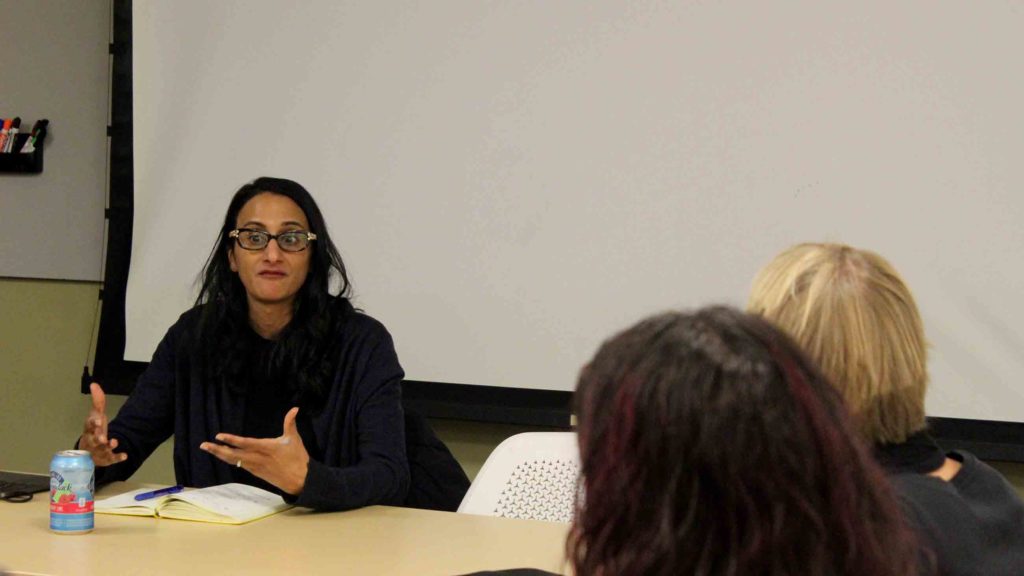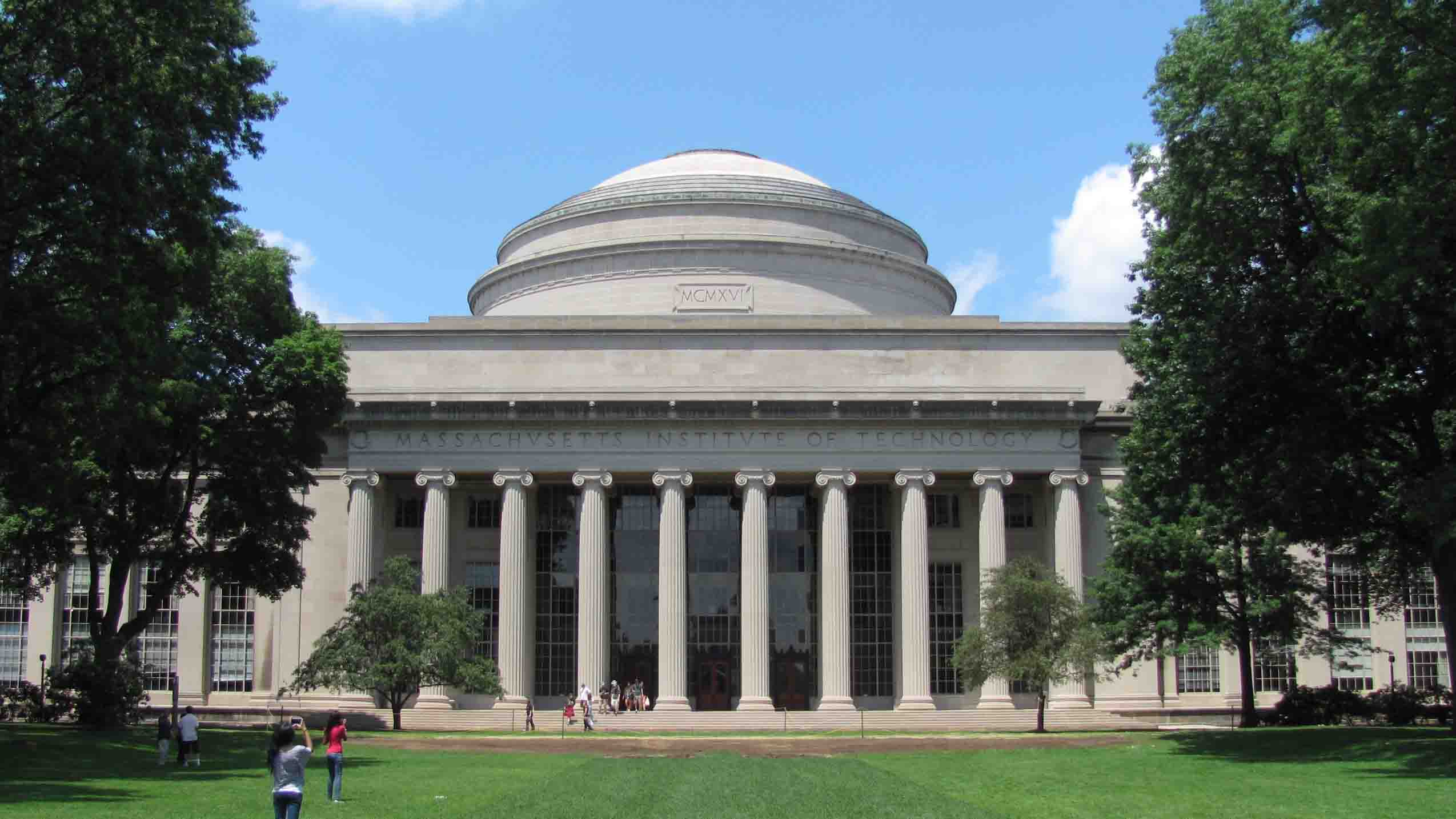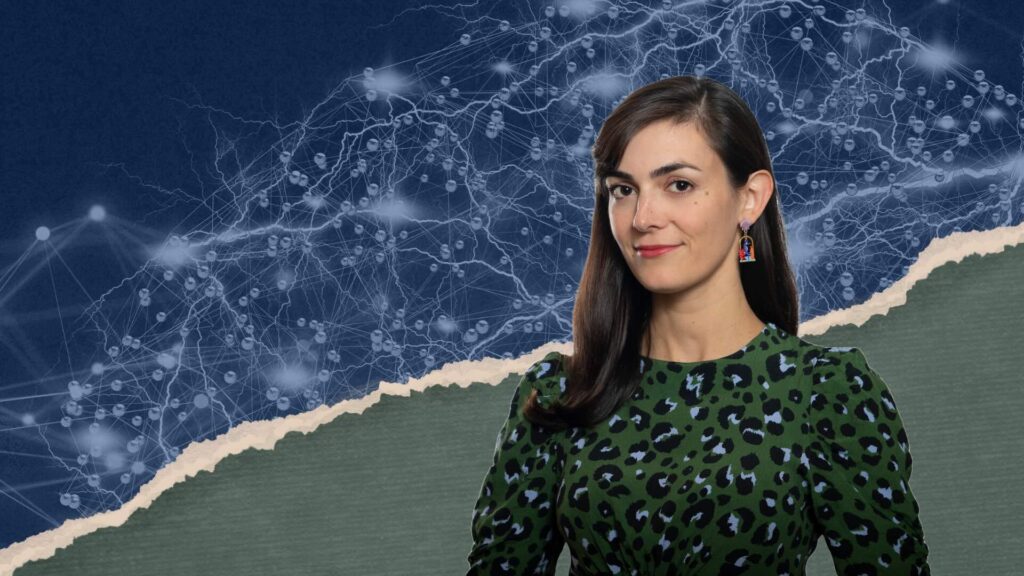The former White House adviser spoke to KSJ fellows about her new book, which draws on insights from biology, economics, and psychology to shed light on long-term decision making.
“My definition of optimism is different,” Bina Venkataraman told attendees of a seminar at MIT’s Knight Science Journalism (KSJ) program on November 5th. Venkataraman, a lecturer in the Institute’s Science, Technology, and Society Program, explained that with her debut book, “The Optimist’s Telescope: Thinking Ahead in a Reckless Age,” she wanted to look beyond the starry-eyed view of optimism as the idea that brighter days are coming. She submitted instead a more practical definition: When it comes to forging a better future, optimism is having choices.
Her book radically strives to prepare society to make the right ones. Having served as a senior adviser on climate change in the Obama White House and as director of global policy initiatives at the Broad Institute, Venkataraman is a bona fide expert in making better long-term decisions. In her paradigm-shifting book, released last August, she weaves a wide range of insights from new research in biology, economics, and psychology to shed light on how people all over the world can and should prepare to beat back looming threats associated with personal, cultural, economic, and political shortsightedness.
With journalistic insight, Venkataraman explained why she felt it was important to deeply interrogate conventional wisdom about societal decision-making — and to sometimes overturn that wisdom. In her book, she promotes imaginative thinking, debunking several baseless but common assertions — for instance, that humanity is cursed, that the commons is “screwed,” that society is reckless by nature, and that better prediction can fix our problems.
Venkataraman’s talk sparked a lively question and answer session, spanning topics from natural disasters to the politics of vaccinations. Sonali Prasad, a Knight Science Journalism fellow who has done extensive reporting on earthquakes, brought up the difficulties of preparing people living on fault lines for future disaster scenarios that we seem incapable of imagining. “How do you convey resilience tactics to the community?” she asked.
Venkataraman cited psychologist and economist Daniel Kahneman’s studies on behavioral economics, noting that “people have a much easier time preparing for a threat — or even believing seriously that it’s likely a threat — if you give them specific details, concrete details, and you make it as colorful as it can be.”
Another Knight Science Journalism fellow, Anil Ananthaswamy, brought up the threats posed by misinformation — and the challenge of communicating with readers who might more readily accept information from a politician or celebrity than from a scientist. “I’m wondering what we can do to address that,” he said.
Venkataraman responded that countering misinformation goes deeper than simply understanding who people trust. It also has to do with understanding how people receive and evaluate information. She said that’s one reason she remains focused on the gap between knowledge and action.
In “The Optimist’s Telescope,” Venkataraman takes a long view on societal change and goes to extremes to “paint a larger picture of what’s possible.” As the seminar drew to a close, she showed her optimistic side one last time. Asked how readers can act on the reporting in her book, she said, “I don’t think there’s anything wrong with using these insights to just do better.”





Leave a Reply